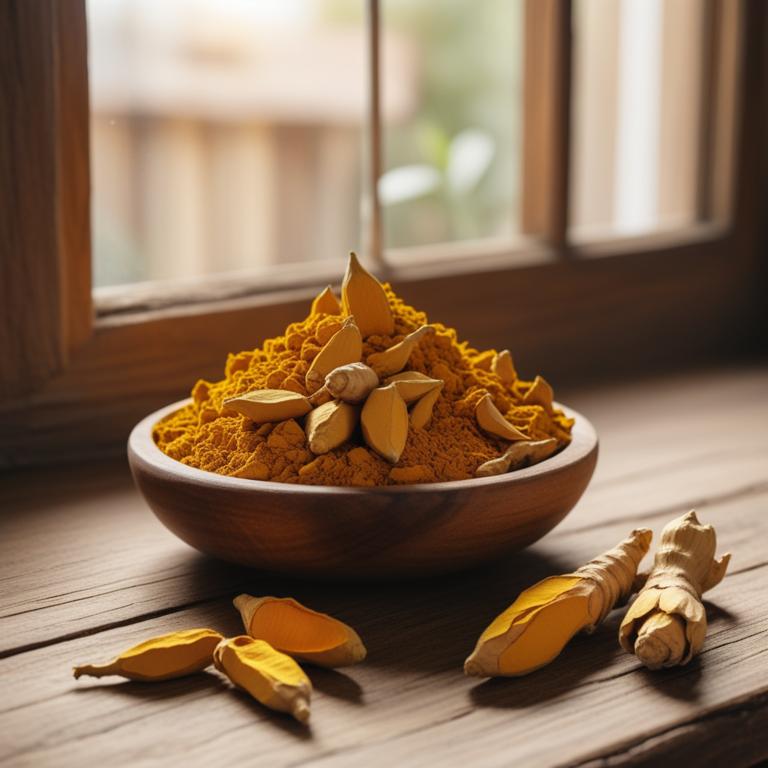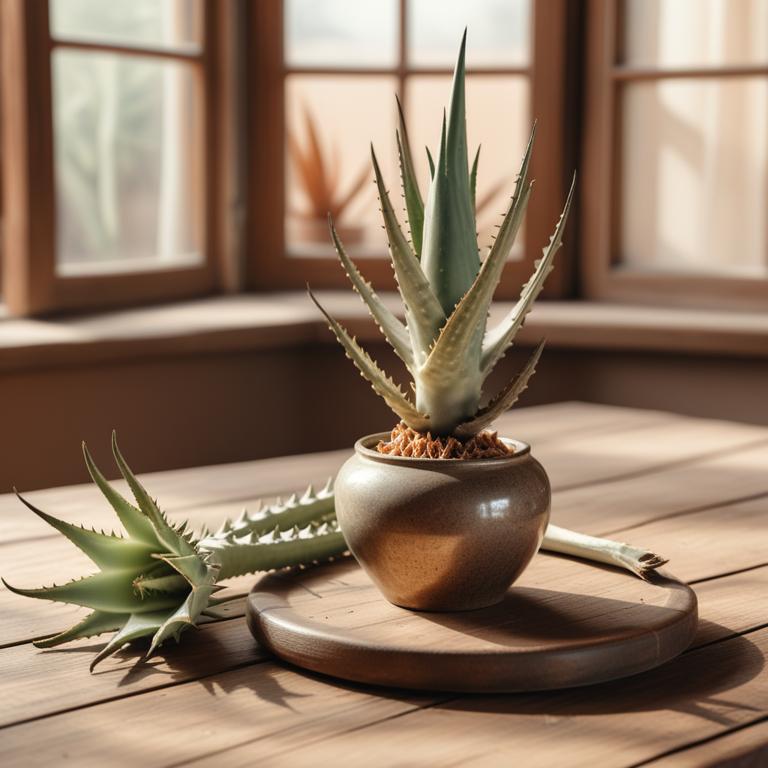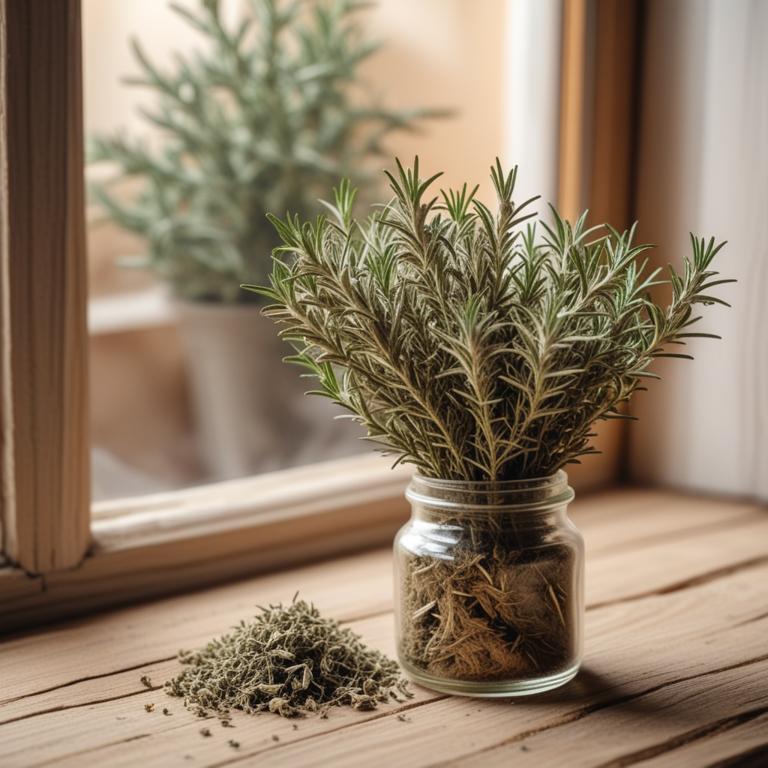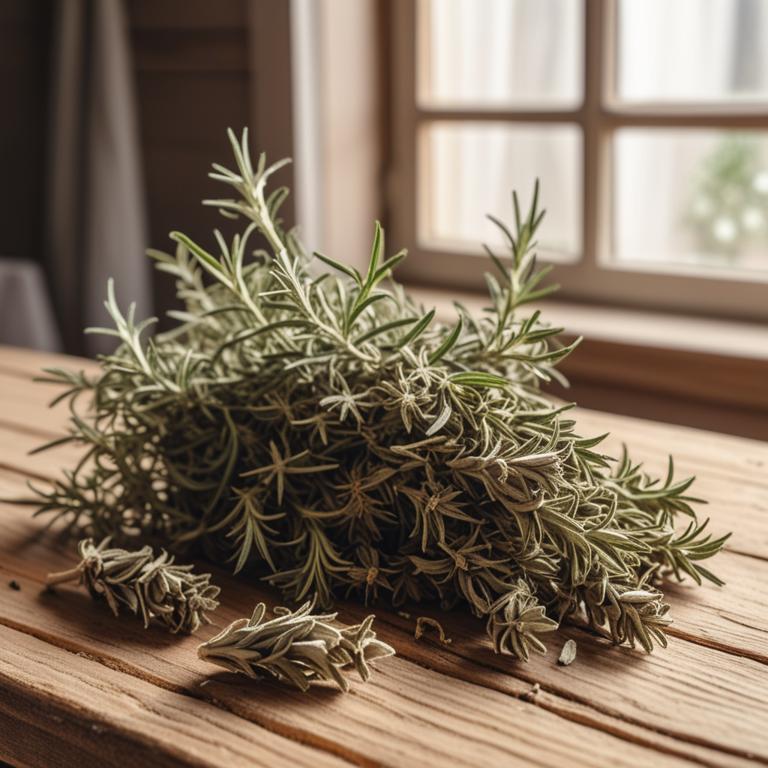Updated: Nov 30, 2024
11 Herbal Teas For Mouth Ulcers

Herbal teas have long been used to soothe mouth ulcers, and for good reason.
These teas work by reducing inflammation and promoting healing in the affected area. Take Echinacea purpurea for example - this herb has natural anti-inflammatory properties that help to calm the pain and discomfort associated with mouth ulcers. Glycyrrhiza glabra, also known as licorice root, is another effective herb that has been shown to reduce inflammation and promote healing.
Its active compound, glycyrrhizin, has anti-inflammatory and antimicrobial properties that help to fight off infection and promote a speedy recovery. Meanwhile, Zingiber officinale, commonly known as ginger, has natural anti-inflammatory compounds that help to reduce swelling and pain in the mouth. Drinking these herbal teas can bring a range of benefits to your life, from alleviating the discomfort of mouth ulcers to boosting your immune system and promoting overall health and well-being. Regular consumption of these teas can also help to reduce stress and anxiety, and promote a sense of calm and relaxation.
By incorporating herbal teas into your daily routine, you can take a proactive approach to managing mouth ulcers and promoting a healthy, happy mouth.
This article explains in detail what are the best herbal teas for mouth ulcers and wh.
Also, you may be interested in...
Today Free Bonus!
The Ultimate Herb Drying Checklist
(For Long-Lasting Powerful Medicinal Effect)
How to easily dry herbs that don't mold and that keep their strong medicinal power for more than 1 year.
Table of Contents
1. Echinacea purpurea

Echinacea purpurea teas contains bioactive constituents like alkylamides, caffeic acid, and rosmarinic acid, which have anti-inflammatory properties.
These compounds help reduce swelling and pain in the mouth, making them effective in treating mouth ulcers. Alkylamides, in particular, have been shown to inhibit the production of pro-inflammatory enzymes, which contribute to the development and severity of mouth ulcers. Caffeic and rosmarinic acids have antioxidant properties, which help protect the mouth from damage caused by free radicals and promote healing.
By reducing inflammation and promoting healing, Echinacea purpurea teas can help alleviate the symptoms of mouth ulcers and facilitate recovery.
- Gather 2 teaspoons of dried Echinacea purpurea flowers and 1 cup of boiling water.
- Measure 1 tablespoon of honey (optional) and a slice of fresh ginger (optional).
- Combine Echinacea flowers and boiling water in a cup. Let it steep for 5-7 minutes.
- Strain the tea and discard the flowers. Add honey and ginger (if using).
- Drink the tea 2-3 times a day to help soothe mouth ulcers.
Purple Coneflower Tea on Amazon
Purple Coneflower Herb Echenecia Tea - Immunity Support Tea - Echinacea Tea Coneflower Tea Echinacea Herb Purple Tea Echinacea Herb Dry Echinacea Dried Herb Echinacea Leaves Purple Echinacea Tea
Disclaimer: We earn a commission if you click this link and make a purchase at no additional cost to you.
2. Glycyrrhiza glabra

Glycyrrhiza glabra teas contains glycyrrhizin, a triterpenoid saponin that has anti-inflammatory properties.
These properties help reduce swelling and pain in the mouth. The tea also contains flavonoids like kaempferol and quercetin, which have antioxidant and anti-inflammatory effects. Glycyrrhizin inhibits the production of prostaglandins, hormone-like substances that cause pain and inflammation.
By reducing inflammation and pain, Glycyrrhiza glabra teas can help soothe and heal mouth ulcers.
- Gather 1 tablespoon of dried Glycyrrhiza glabra root powder.
- Add the root powder to 1 cup of boiling water.
- Reduce heat and let the mixture simmer for 5-7 minutes.
- Strain the liquid into a cup and let it cool.
- Drink the tea 2-3 times a day to help soothe mouth ulcers.
Licorice Tea on Amazon
FullChea - Licorice Root Tea Bag, 40 Teabags, 2g/bag - Premium Licorice Root - Non-GMO - Naturally Caffeine-free Herbal Tea - Aid in Digestion & Promote Respiratory Health
Disclaimer: We earn a commission if you click this link and make a purchase at no additional cost to you.
3. Zingiber officinale

Zingiber officinale teas contains compounds like gingerols and shogaols, which have anti-inflammatory and antioxidant properties.
These properties help reduce swelling and pain in the mouth. Gingerols, specifically, have been shown to have antibacterial effects, which can help combat infections that may be contributing to mouth ulcers. Shogaols have also been found to have analgesic properties, which can help alleviate pain and discomfort associated with mouth ulcers.
By reducing inflammation and infection, and alleviating pain, Zingiber officinale teas may provide relief from mouth ulcers.
- Boil 1 cup of water in a pot.
- Grate 1/2 teaspoon of fresh ginger root.
- Add grated ginger to boiling water.
- Let it steep for 5-7 minutes.
- Strain and drink warm.
Ginger Tea on Amazon
FGO Organic Ginger Tea, Eco-Conscious Tea Bags, 100 Count, Packaging May Vary (Pack of 1)
Disclaimer: We earn a commission if you click this link and make a purchase at no additional cost to you.
4. Aloe vera
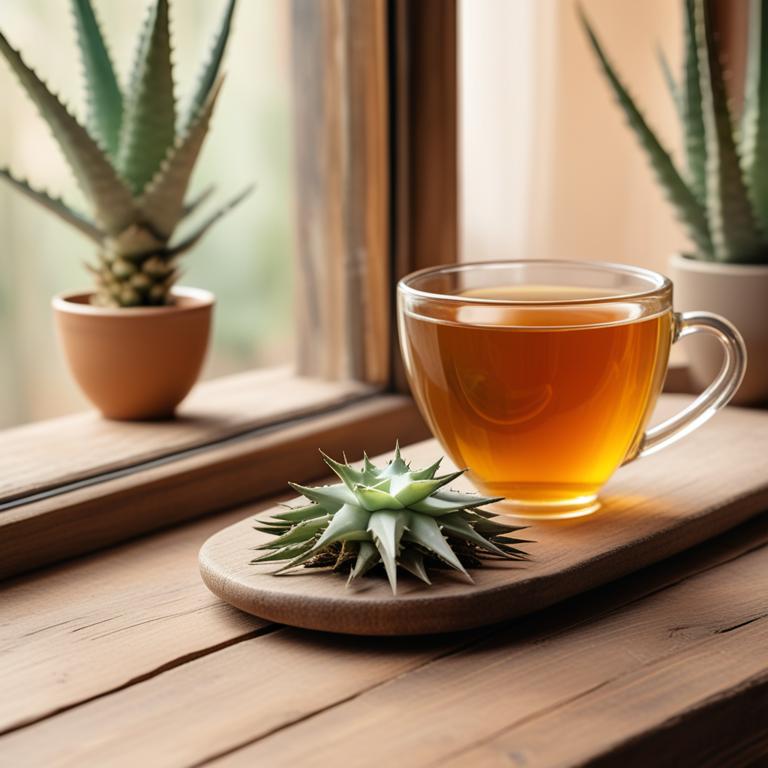
Aloe vera teas contains a high concentration of bioactive compounds like aloin, aloe-emodin, and acemannan.
These compounds have anti-inflammatory and antimicrobial properties that help soothe and heal mouth ulcers. The aloe-emodin in aloe vera teas has been shown to reduce inflammation and promote wound healing by increasing blood flow to the affected area. The antimicrobial properties of aloin and acemannan help prevent infection and promote a healthy environment for healing.
By reducing inflammation and preventing infection, aloe vera teas can help alleviate the pain and discomfort associated with mouth ulcers.
- Gather 2 tablespoons of Aloe vera gel from a fresh Aloe vera leaf.
- Boil 1 cup of water in a kettle or on the stove.
- Pour the boiling water over the Aloe vera gel in a cup.
- Let the mixture steep for 5-7 minutes, then strain it.
- Drink 1 cup of the Aloe vera tea, 2-3 times a day, for relief from mouth ulcers.
5. Aloe barbadensis

Aloe barbadensis teas contains aloin and aloe-emodin, two biologically active constituents that help with mouth ulcers.
Aloin has anti-inflammatory properties that reduce swelling and pain in the mouth. Aloe-emodin has antimicrobial properties that prevent bacterial growth, which can cause further irritation and infection. The gel in Aloe barbadensis also contains vitamin C and E, which help to promote wound healing and protect the mouth from oxidative stress.
Drinking Aloe barbadensis teas may help to soothe and calm mouth ulcers, reducing their severity and duration.
- Cut a 5-inch piece of Aloe barbadensis leaf from a healthy plant.
- Remove the thick outer skin with a spoon, and scoop out the gel inside.
- Transfer 2-3 tablespoons of the Aloe gel to a cup.
- Add 1 cup of boiling water to the cup with the Aloe gel.
- Let it steep for 10-15 minutes, then strain and drink as a tea.
6. Silybum marianum

Silybum marianum teas contains silymarin, a bioactive compound with anti-inflammatory properties.
This helps to reduce swelling and pain associated with mouth ulcers. Silymarin also has antioxidant properties, which protect the mouth from free radicals that can irritate the affected area. The flavonoids in Silybum marianum teas, such as silibinin and silidianin, have been shown to reduce inflammation and promote healing.
By reducing inflammation and promoting healing, Silybum marianum teas can help to alleviate symptoms of mouth ulcers.
- Gather 2 cups of fresh or dried Silybum marianum leaves.
- Combine the leaves with 4 cups of boiling water in a large pot.
- Let the mixture steep for 10-15 minutes, then strain it.
- Add 1 tablespoon of honey to the tea, if desired, for taste.
- Drink 1/2 to 1 cup of the tea 3-4 times a day to help soothe mouth ulcers.
7. Curcuma longa

Curcuma longa teas contains bioactive compounds like curcumin, demethoxycurcumin, and bisdemethoxycurcumin.
These compounds have anti-inflammatory and antioxidant properties that can help reduce swelling and pain in mouth ulcers. Curcumin, in particular, has been shown to inhibit the production of pro-inflammatory enzymes, which contribute to the development and severity of mouth ulcers. The antioxidant properties of these compounds can also help protect the mucous membranes in the mouth from damage caused by free radicals, promoting healing and reducing the risk of infection.
By consuming Curcuma longa teas, the bioactive compounds are absorbed into the bloodstream and carried to the affected area, where they can exert their anti-inflammatory and antioxidant effects.
- Get 1 teaspoon of dried Curcuma longa root. You can buy it in health food stores or online.
- Boil 1 cup of water in a pot.
- Add the dried Curcuma longa root to the boiling water.
- Reduce heat and let it simmer for 5-7 minutes. Strain the mixture using a tea strainer.
- Drink the tea while it's still warm, 2-3 times a day, to help soothe mouth ulcers.
8. Melissa officinalis

Melissa officinalis teas contains rosmarinic acid, a powerful antioxidant that helps to reduce inflammation and promote healing in the mouth.
The tea also contains triterpenoid saponins, which have anti-inflammatory and antimicrobial properties that can help to soothe and protect the affected area. The antibacterial properties of Melissa officinalis tea can help to prevent infection and promote a healthy environment for the ulcer to heal. The tea's anti-inflammatory properties can also help to reduce pain and discomfort associated with mouth ulcers.
By reducing inflammation and promoting a healthy environment, Melissa officinalis tea can help to speed up the healing process and alleviate symptoms of mouth ulcers.
- Gather 1 cup of fresh Melissa officinalis leaves or 1 teaspoon of dried leaves.
- Heat 1 cup of water in a saucepan and bring it to a boil.
- Add the Melissa officinalis leaves to the boiling water and let it simmer for 5-7 minutes.
- Strain the liquid into a cup and discard the leaves. Let it cool.
- Drink the tea 2-3 times a day to help soothe mouth ulcers.
9. Cinchona officinalis

Cinchona officinalis teas contains a number of bioactive constituents, including quinine and alkaloids like cinchonine and cinchonidine.
These compounds have anti-inflammatory and antimicrobial properties that help reduce the severity and duration of mouth ulcers. The alkaloids in Cinchona officinalis tea have been shown to inhibit the growth of bacteria and viruses that can cause mouth ulcers. Additionally, the quinine in the tea has been found to reduce inflammation and promote healing in the mouth.
By reducing inflammation and preventing the growth of bacteria and viruses, Cinchona officinalis tea can help alleviate the symptoms of mouth ulcers.
- Gather 1 teaspoon of dried Cinchona officinalis bark and 1 cup of boiling water.
- Place the dried Cinchona officinalis bark in a cup.
- Pour boiling water over the bark and let it steep for 5-7 minutes.
- Strain the mixture into another cup to remove the bark.
- Drink the tea 3 times a day for mouth ulcers, or as directed by a healthcare professional.
10. Ginkgo biloba

Ginkgo biloba teas contains flavonoids and bilobalide, which are the bioactive constituents that make it effective in soothing mouth ulcers.
The flavonoids in Ginkgo biloba have anti-inflammatory properties, which help reduce swelling and pain associated with mouth ulcers. Bilobalide, on the other hand, has antioxidant properties that promote healing and prevent further damage to the affected tissue. The combination of these properties in Ginkgo biloba teas helps to reduce the severity of mouth ulcers and promote faster healing.
This makes Ginkgo biloba teas a popular natural remedy for mouth ulcers.
- Gather ingredients: 1 cup of boiling water, 1 teaspoon of dried Ginkgo biloba leaves, 1 tablespoon of honey (optional)
- Measure 1 teaspoon of dried Ginkgo biloba leaves and place them in a tea infuser or a small muslin bag
- Pour 1 cup of boiling water over the Ginkgo biloba leaves in the tea infuser or muslin bag
- Steep for 5-7 minutes, then remove the tea infuser or muslin bag
- Strain the tea and add 1 tablespoon of honey (if using). Drink the tea 2-3 times a day to help soothe mouth ulcers
Ginkgo Tea on Amazon
FullChea - Ginkgo Biloba Tea Bags, 36 Teabags - Premium Dried Ginkgo Biloba Leaves - Non-GMO - Caffeine-free - Support Memory & Focus
Disclaimer: We earn a commission if you click this link and make a purchase at no additional cost to you.
11. Hypericum perforatum

Hypericum perforatum teas contains hyperforin and hypericin, two active compounds that have anti-inflammatory properties.
These compounds help to reduce swelling and pain in the mouth, making it easier to heal from ulcers. The flavonoids and phenolic acids in Hypericum perforatum teas also have antimicrobial properties, which can help to prevent bacterial infections that can worsen ulcers. Additionally, Hypericum perforatum teas contains antioxidants that help to protect the mucous membranes in the mouth from damage.
By reducing inflammation and protecting the mouth tissues, Hypericum perforatum teas can help to promote the healing of mouth ulcers.
- Gather 1 cup of fresh or dried Hypericum perforatum leaves and flowers.
- Use 1 tablespoon of the leaves and flowers and place them in a cup.
- Pour 1 cup of boiling water over the leaves and flowers.
- Let it steep for 5-10 minutes, then strain the mixture.
- Drink the tea 2-3 times a day to help soothe mouth ulcers.
FAQ
Can drinking herbal tea prevent mouth ulcers from forming?
Drinking herbal tea may help prevent mouth ulcers from forming.
Some herbal teas, like peppermint and chamomile, have anti-inflammatory properties that can soothe and calm the mouth. These teas may also help reduce stress and anxiety, which can contribute to mouth ulcers.
Regularly drinking herbal tea might reduce the risk of getting mouth ulcers.
Is it safe to consume herbal teas for mouth ulcers every day?
Consuming herbal teas for mouth ulcers daily can be safe if chosen wisely.
Some teas, like peppermint and chamomile, are calming and may soothe the pain. Others, like slippery elm, have anti-inflammatory properties that can help heal ulcers.
However, some teas can irritate or dry out the mouth, making ulcers worse.
How long does it take for herbal teas to show results in mouth ulcers?
Herbal teas can help soothe mouth ulcers, but it's hard to say exactly when you'll feel better.
Some people notice a difference in a few days, while others might take a week or two to see improvement.
It really depends on the individual and the severity of the ulcers.
What time of day is best to drink herbal tea for mouth ulcers?
Drinking herbal tea for mouth ulcers in the morning can be helpful.
Many herbal teas, such as peppermint and chamomile, have anti-inflammatory properties that can soothe mouth ulcers.
Drinking a cup of warm herbal tea as soon as you wake up can give you a refreshing start to the day and help calm your mouth.
Related Articles

Causes, Symptoms, and Herbal Remedies for Periodontal Disease Prevention and Management
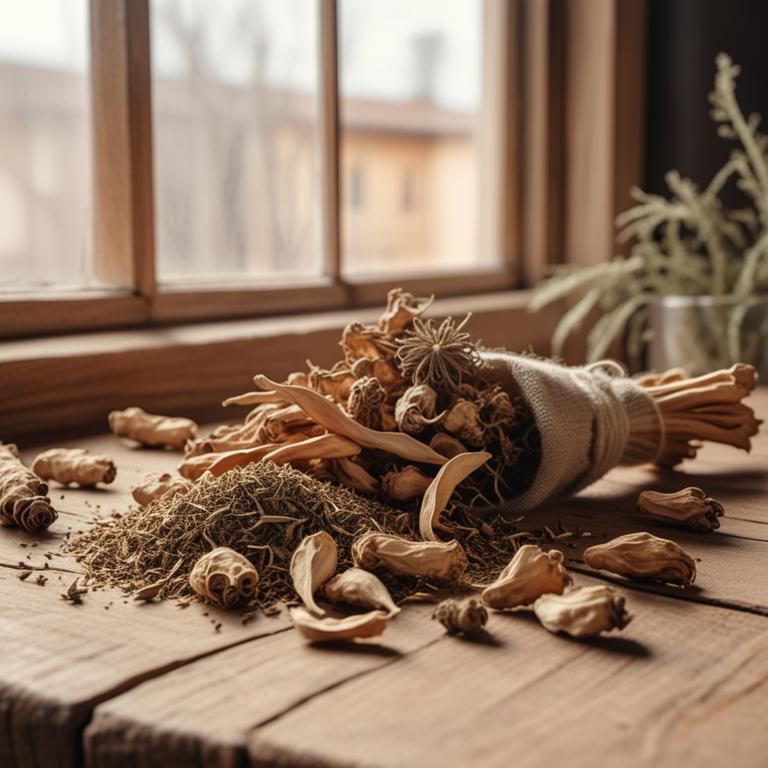
Fever Blister on Lip: Causes, Herbal Preparations, and Home Remedies for Relief
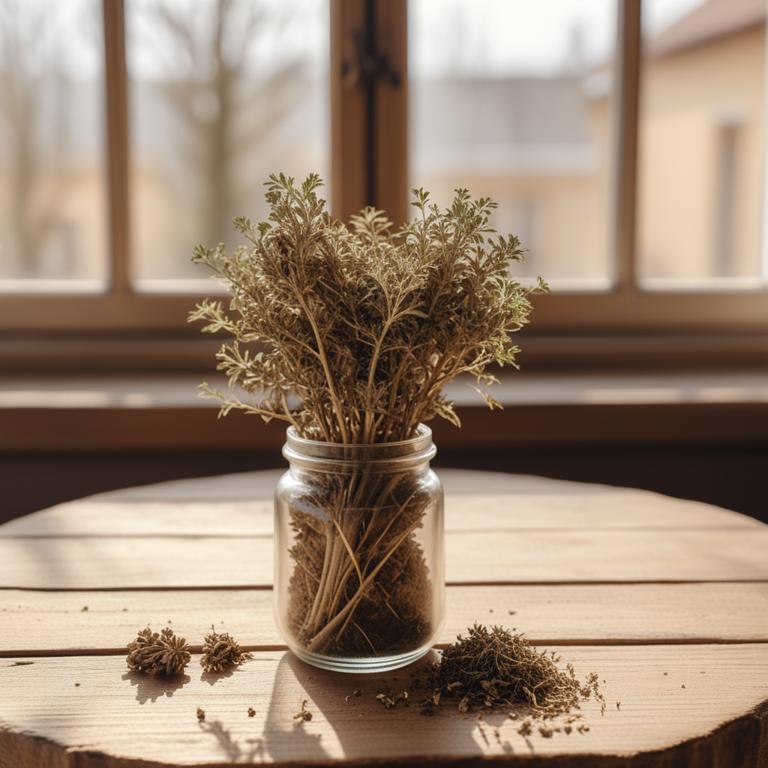
Causes and Remedies for Dark Lips: Medicinal Herbs and Herbal Preparations
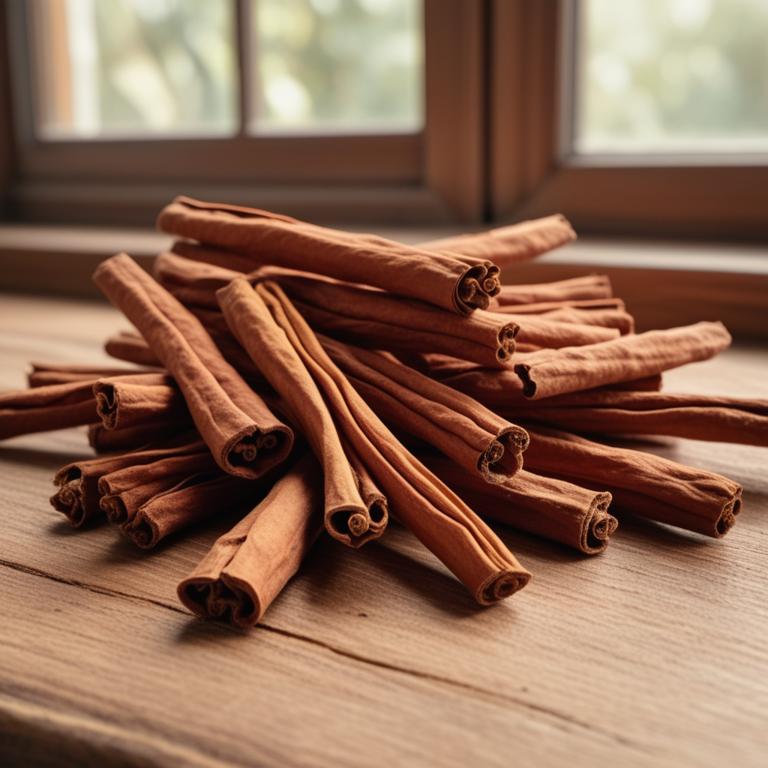
Overcoming Bad Breath with Medicinal Herbs and Herbal Remedies

Jock Itch Causes, Symptoms, and Herbal Preparations for Relief
